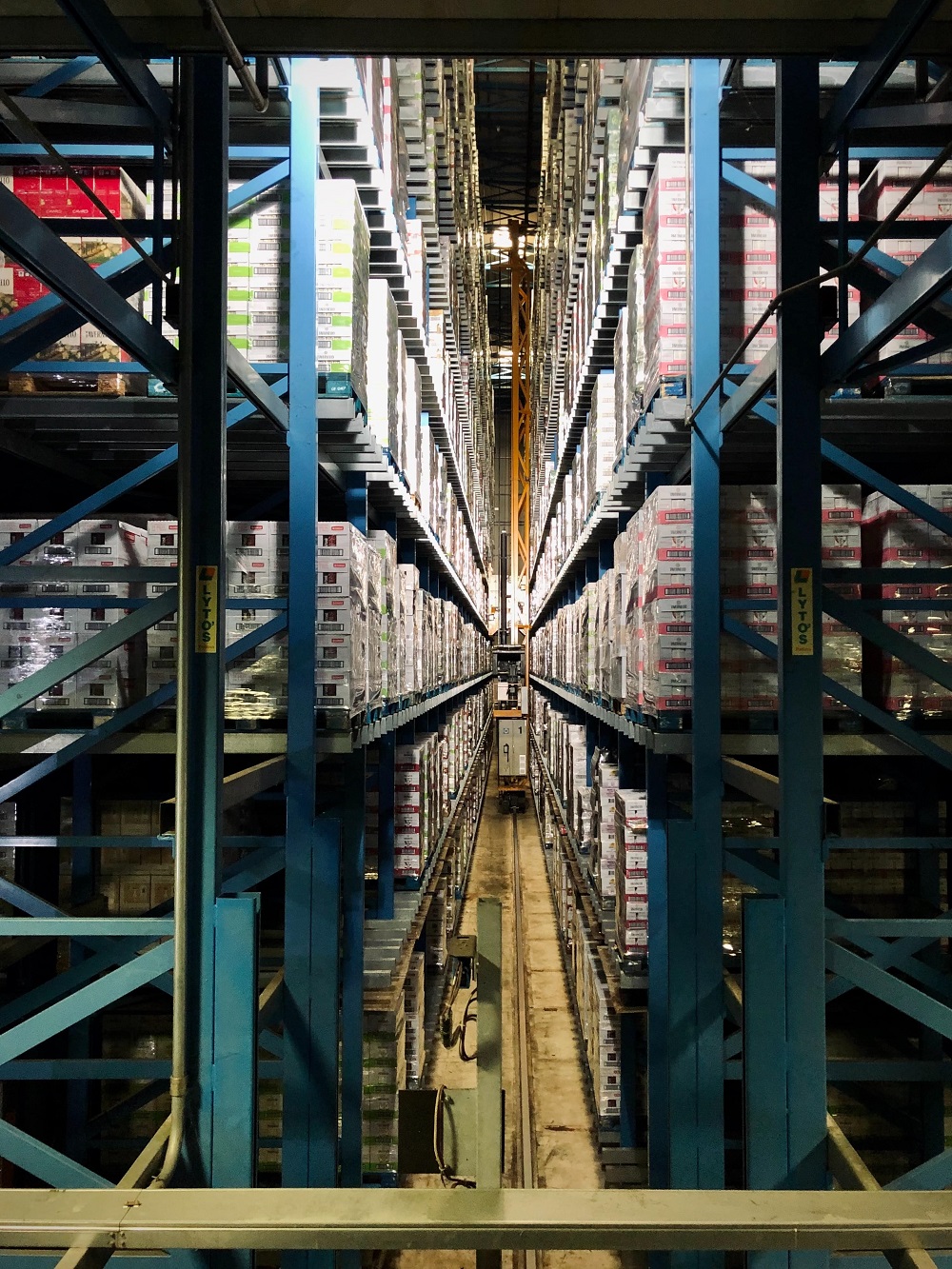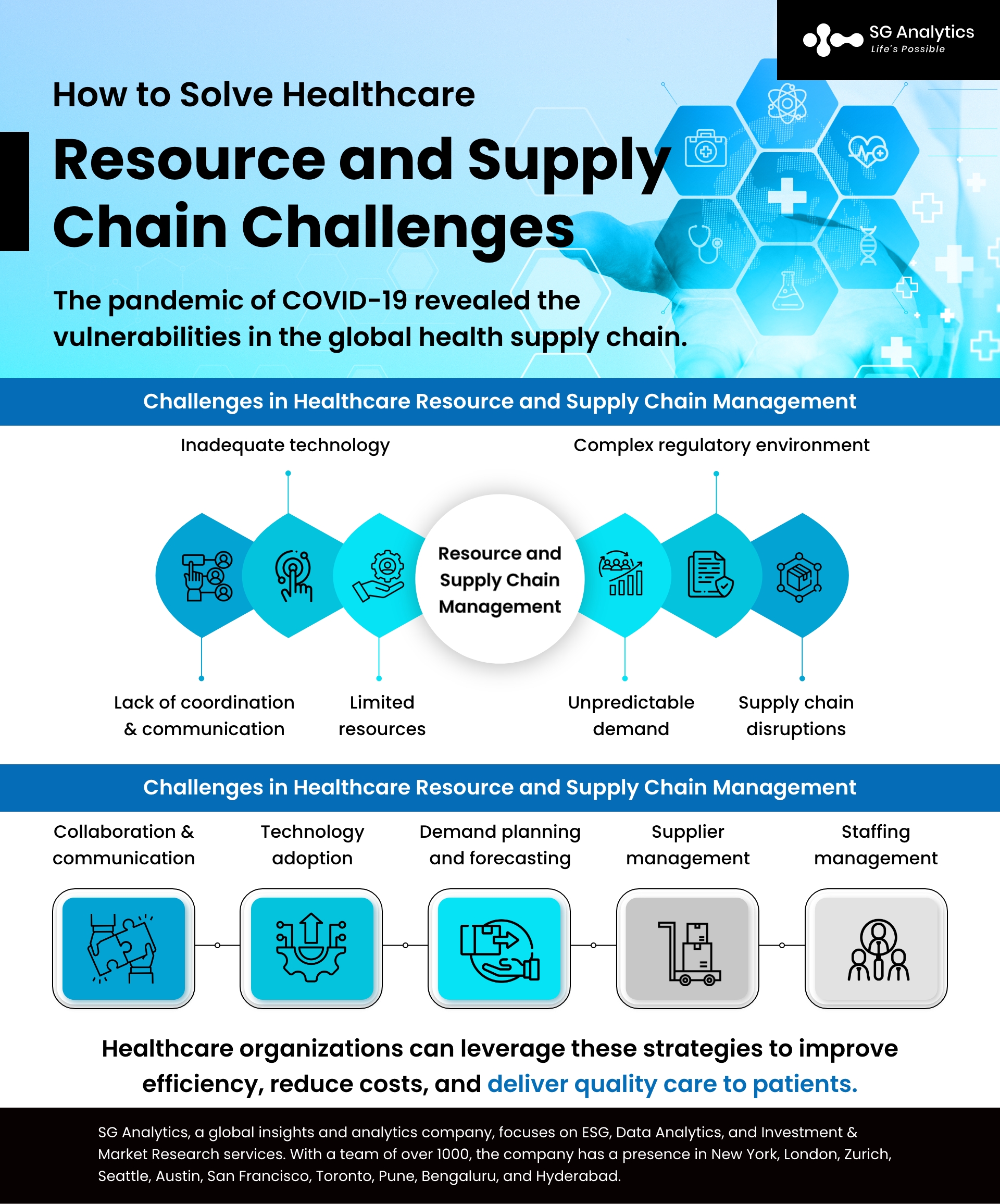The pandemic of COVID-19 revealed the vulnerabilities in the global health supply chain. Lack of medical masks, test kits, personal protective equipment (PPE), and ventilators hindered the initial response in the majority of countries.
Problems with the health supply chain, such as drug and equipment shortages, expired medications, damaged medical equipment, and a lack of infrastructure and manufacturing capacity, are not new.
Healthcare is an essential industry that contributes significantly to the welfare of society by providing quality care to the ill, injured, and those in need. Challenges in healthcare resource management and supply chain are crucial issues facing the industry.
The supply chain, which consists of the flow of products and services, people, and information, is vital to the delivery of high-quality healthcare services. Multiple stakeholders, including healthcare providers, patients, suppliers, and policymakers, must collaborate to manage the healthcare resource and supply chain.
In this blog, we will discuss how to address resource and supply chain issues in healthcare.

Challenges in Healthcare Resource and Supply Chain Management:
There are several challenges associated with managing the healthcare resource and supply chain, which include the following:
Lack of Coordination and Communication
Coordination and communication among stakeholders are critical for effective healthcare resources and supply chain management. However, healthcare organizations often struggle to establish effective communication channels with suppliers, patients, and other stakeholders. This can lead to delays, inefficiencies, and poor patient outcomes.
Inadequate Technology
Many healthcare organizations administer their resources and supply chains with obsolete technology. These technologies may not be efficient or accurate, leading to delays and errors in inventory management, patient care, and other critical areas.
Limited Resources
Limited resources can be a significant challenge for healthcare organizations, particularly in developing countries or regions with high levels of poverty. Healthcare providers may struggle to obtain essential supplies and equipment due to limited funding, inadequate infrastructure, or other factors.

Complex Regulatory Environment
The healthcare industry is subject to a complex regulatory environment, with numerous rules and regulations that healthcare organizations must follow. This can make it challenging to manage resources and supply chains effectively, particularly for smaller healthcare providers with limited resources.
Unpredictable Demand
Demand for healthcare services can be unpredictable, particularly in emergency situations or during periods of high demand. Healthcare organizations must be able to respond quickly to changes in demand and adjust their resource and supply chain management strategies accordingly.
Supply Chain Disruptions
Natural disasters, political instability, and global pandemics are a few examples of factors that can cause supply chain disruptions. These disruptions can lead to shortages, delays, and other challenges in managing healthcare resources and supply chains.
Solving Healthcare Resource and Supply Chain Challenges:
To address healthcare resource and supply chain challenges, healthcare organizations can implement the following strategies:

Collaboration and Communication
Collaboration and communication among stakeholders are critical for effective healthcare resources and supply chain management. Healthcare organizations can establish communication channels to share information and coordinate activities. A hospital, for instance, might work with its vendors to stock up on necessary supplies and gear. In addition, doctors and patients can stay in touch to make sure everyone's needs are met.
Effective collaboration and communication can help healthcare organizations to reduce costs, avoid delays, and improve patient outcomes. It can also help to identify opportunities for improvement and innovation in healthcare delivery.
Technology Adoption
Technology can play a significant role in healthcare resources and supply chain management. Healthcare organizations can adopt technologies such as automated inventory management systems, electronic medical records, and real-time tracking systems to improve efficiency and accuracy.
Organizations in the healthcare industry can benefit from automated inventory management solutions. These systems can alert healthcare providers when supplies are running low, and they can also generate reports that help to identify areas for improvement.

Quick and easy access to patient data is one of the many benefits of electronic medical records for healthcare practitioners. This can help to reduce delays in patient care and improve patient outcomes.
Real-time tracking systems can help healthcare organizations to monitor the movement of supplies and equipment. This can help to identify potential supply chain delays or disruptions and take corrective action.
Demand Planning and Forecasting
Accurate demand planning and forecasting can help healthcare organizations manage inventory levels and ensure that supplies are available when needed. Healthcare organizations can use historical data and predictive analytics to forecast demand and plan accordingly.
Demand planning and forecasting can help healthcare organizations to reduce costs by avoiding excess inventory and minimizing shortages. Assuring that medical professionals have access to the tools they need to provide quality treatment can also contribute to better patient outcomes.
Supplier Management
Supply and equipment availability is dependent on efficient supplier management. Healthcare organizations can establish relationships with reliable suppliers and negotiate contracts that ensure timely and cost-effective supply.

By negotiating more favorable terms with suppliers, healthcare organizations can save money with the help of supplier management. Assuring that medical professionals have access to top-notch tools and supplies can also boost patient outcomes.
Staffing Management
Effective staffing management is critical for ensuring that healthcare personnel are available when needed. Healthcare organizations can implement staffing models that optimize resource utilization and ensure that there are enough personnel to meet patient demand.
Staffing management can help healthcare organizations to reduce costs by avoiding overstaffing or understaffing. It can also help to improve patient outcomes by ensuring that healthcare providers have adequate support to deliver quality care.
Also Read - Healthcare Outlook: How Artificial Intelligence is Fostering Innovation?

Conclusion
Healthcare resources and supply chain management are critical components of healthcare delivery. The challenges associated with managing healthcare resources and supply chains can be addressed by adopting strategies such as collaboration and communication, technology adoption, demand planning and forecasting, supplier management, and staffing management.
Healthcare organizations can leverage these strategies to improve efficiency, reduce costs, and deliver quality care to patients.
The healthcare supply chain is becoming increasingly complex due to expanding regulatory requirements, rising prices, and rising customer expectations. Profit margins can be drastically improved by adopting lean supply chain practices and implementing related technological and operational solutions. Pharmaceutical and medical device firms can save or improve the lives of people all around the world if they adopt a supply chain revolution.
SG Analytics, a top healthcare analytics service provider, uses proprietary ML tools to assist you with data cleansing, data management and developing insightful dashboards. These tools can help you with strategic market access, market entry, competitive intelligence, drug forecasting and many other tasks.
SG Analytics' network of 700+ key opinion leaders across many geographies enables us to provide our clients with more timely and effective solutions. For the past 10 years, SG Analytics' HRA (healthcare research and analytics) services have been assisting healthcare product and service businesses.









